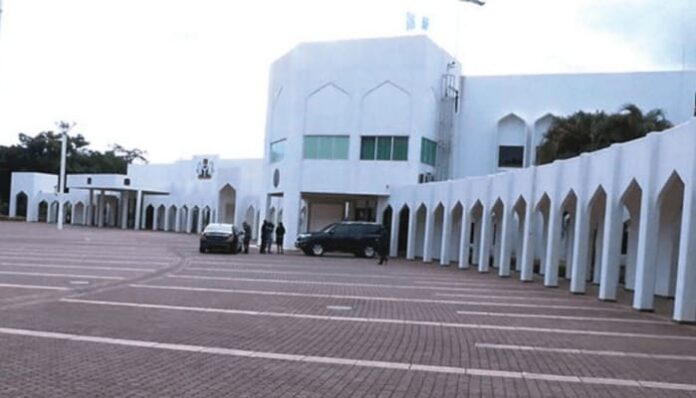By Izunna Okafor, Awka
The Nigerian Airspace Management Authority (NAMA) has called for calm over reports that an unidentified aircraft recently hovered over Nigeria’s seat of power, the Aso Presidential Villa.
Managing Director of NAMA, Mr Ahmed Farouk in a statement issued on Saturday in Lagos said:
“The violation was in the interest of safety, as a result of adverse weather (serious thunderstorm) on the said date”.
He insisted that the Nigerian airspace is fully covered by radar.
Farouk disclosed that the radar stations in Nigeria located in Kano, Lagos, Abuja, and Port-Harcourt are all serviceable.
He described as false and misleading the claims by a blogger that an unidentified aircraft was spotted at the Presidential Villa, Abuja undetected.
According to him, radar services for Terminal and Enroute flights are positively identified and provide air navigation services to airspace users.
“The agency hereby wishes to state that the claim that the Nigerian airspace is not covered by radar is false and misleading.
“The radar stations in Nigeria (Kano, Lagos, Abuja, and Port-Harcourt) are serviceable. Radar services for terminal and enroute flights are positively identified and provide air navigation services to airspace users.
“Yes, it is true that the TRACON system, like any other electronics systems, is undergoing an upgrade of software and modernisation to meet the ever growing demand for efficient, effective and seamless air traffic management services.
“Furthermore, the welfare of Nigerian Air Traffic Controllers in terms of salaries and allowances is not in contention, as to suggest that it is the lowest in the world.”
Farouk added: “The reported ‘unidentified’ aircraft is a security terminology. In real terms, the aircraft in question is known, but only to the ATC.
“The violation was in the interest of safety, as a result of adverse weather (serious thunderstorm) on the said date.
“The purported circular issued by the NCAA is for airlines to be guided from straying into the marked and published prohibited or restricted areas of the Nigerian airspace.
“It is obvious that the journalist in question does not understand the workings of the surveillance systems, hence his misconstrued and misguided information on Primary and Secondary Radar.
“The agency shall willfully volunteer information on her services to anyone who requires them at any time.
“We are pleased to say that the Nigerian airspace is safe and secured,” Farouk said.







